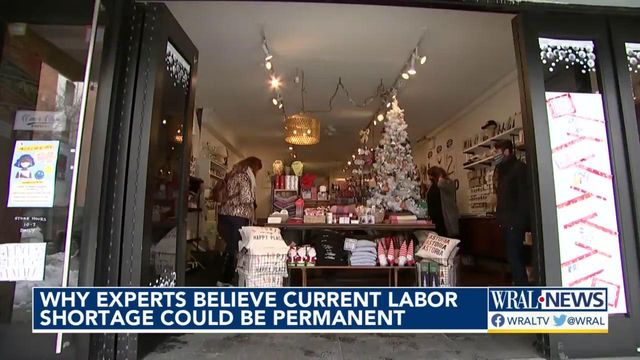As small businesses struggle with staff, experts warn the labor shortage may be permanent
North Carolina currently has 90,000 fewer people working than it did before the coronavirus pandemic.
Local business owners said a labor shortage is exactly what they don't want ahead of the biggest shopping day of the year.
"We will do 25 percent of our sales for the year in the couple of weeks before Christmas," said Deco Raleigh owner Pam Blondin. "We are trying to recover from COVID."
Deco Raleigh had to adjust this Black Friday because of the shortage. Blondin said interest in seasonal work is not what it used to be.
"Typically, this time of year will will have not hundreds, but maybe a dozen job applicants come to use. [This year] we haven't had one," said Blondin.
Blondin said she's considering forgoing typical holiday add-ons like gift wrapping. She said she was also forced to turn down opportunities like participating in holiday pop ups.
"We've had a tough time this year ... we didn't have the power to do it," said Blondin. "We barely have enough to keep Deco rolling and keep Deco staffed."
But, some experts believe the current labor shortage may be permanent, and the shortage doesn't have a lot to do with the pandemic.
Blondin said to steady her situation, she's increased Deco Raleigh's starting wages by $3 to $5 in the last year.
Economist Mike Walden said that's exactly what businesses need to retain employees as the work force dwindles permanently.
"The big reason is that we are an aging society. People in my category [of] 65 and older are growing in numbers, and on the other hand, we are simply not recreating humans at the same rate we used to. The birth rate is well below what's called replace rate," said Walden.
But the good news is that North Carolina may be better off than other parts of the country, according to Walden.
"We are attracting people from other states. We are one of the top states doing that," he said.













